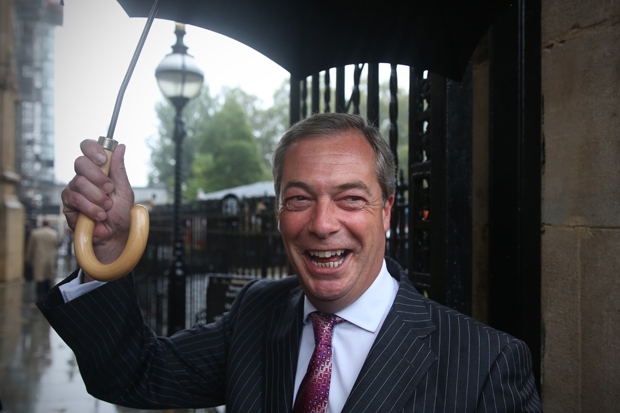[audioplayer src=”http://traffic.libsyn.com/spectator/TheViewFrom22_16_Oct_2014_v4.mp3″ title=”Lord Pearson and Damian Green discuss Ukip and the Tories” startat=81]
Listen
[/audioplayer]British politics is rather like one of those playground games of football where one match is being played lengthways and another sideways. The two regularly get tangled up, making it very hard to work out what is happening. This dynamic in politics will continue all the way to polling day because an electoral system designed for a straight two-way contest is now having to accommodate a four-way fight.
First past the post coped reasonably well with three-party politics. When a coalition was needed in 2010, the Conservatives and the Liberal Democrats could put together a comfortable working majority in the House of Commons. But four-party politics promises to be far less clear-cut. One secretary of state predicts that the support of at least three parties will be needed to guarantee a working Commons majority for the next government.
The cause of this complication is Ukip. It has succeeded in turning English politics into a four-party system; it has been in double digits in every poll since February and, privately, many Liberal Democrats accept that it will get a higher share of the vote than them at the next election. Ukip has also achieved what so many said that it would never be able to do, winning a parliamentary seat under first past the post.
Douglas Carswell’s resounding victory in Clacton means that Ukip has a representative in the Commons. A Ukip member can question the Prime Minister, put down amendments to legislation and serve on a select committee. The Greens have demonstrated that having an MP doesn’t automatically change everything for a party, but Carswell is a formidable parliamentarian: he will leave his mark. Ukip cannot be dismissed as a protest party any more.









Comments
Join the debate for just £1 a month
Be part of the conversation with other Spectator readers by getting your first three months for £3.
UNLOCK ACCESS Just £1 a monthAlready a subscriber? Log in